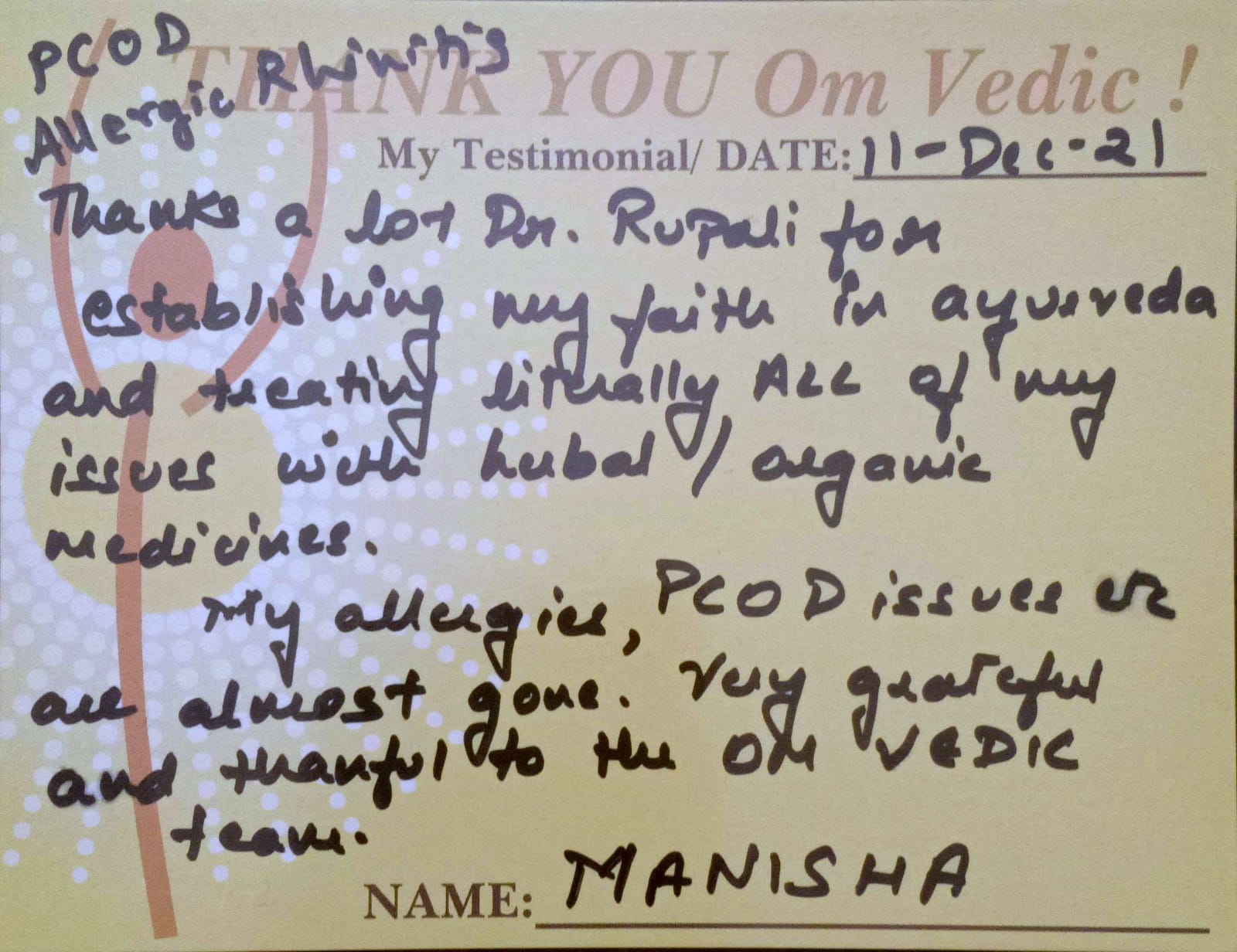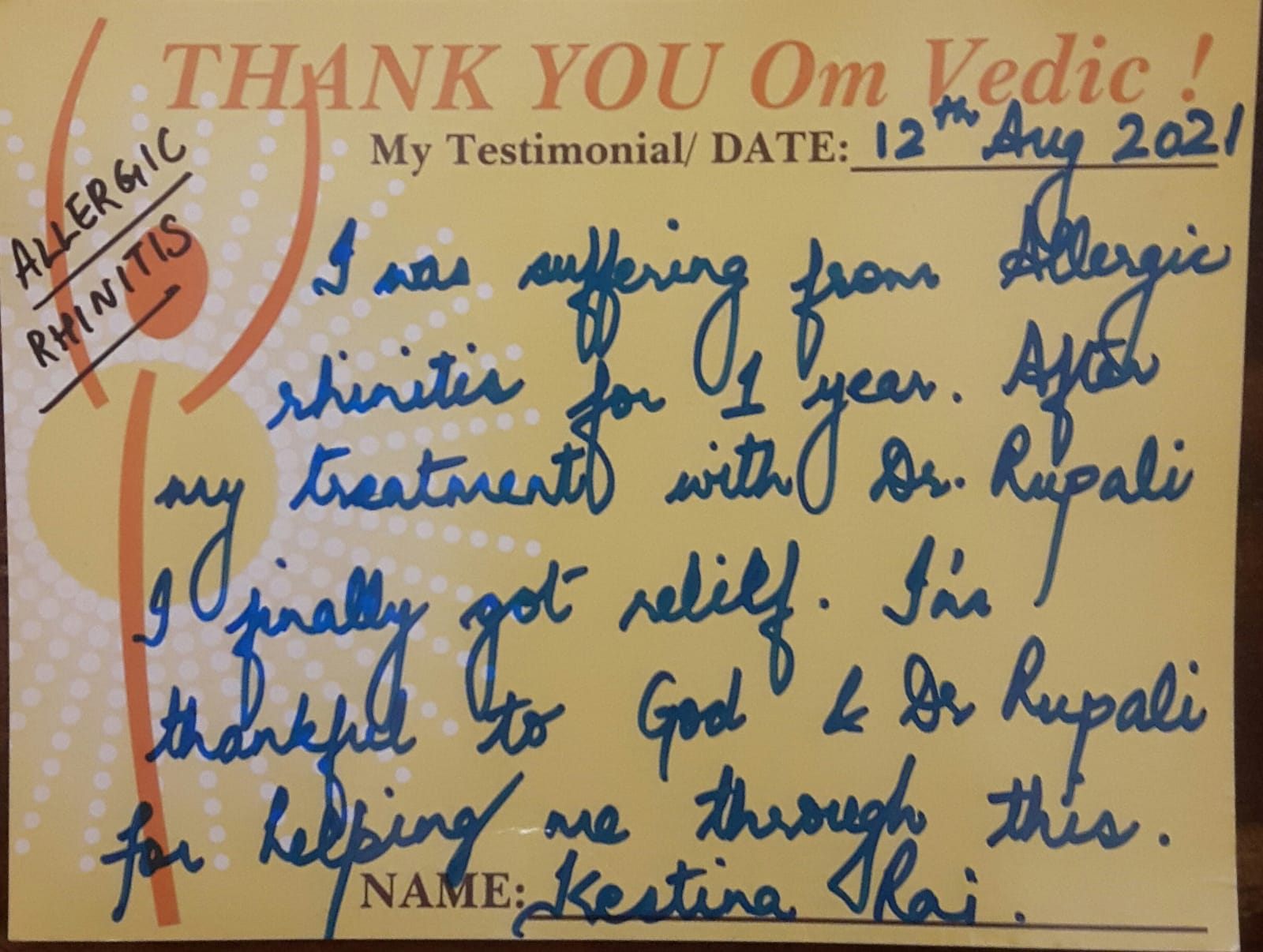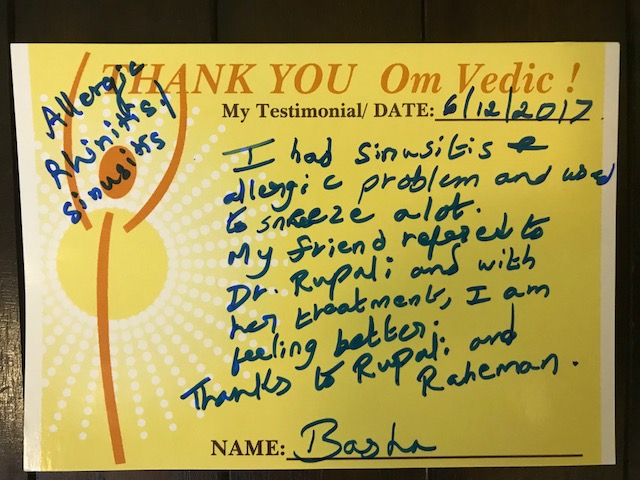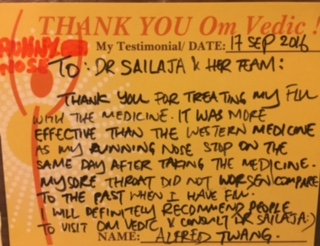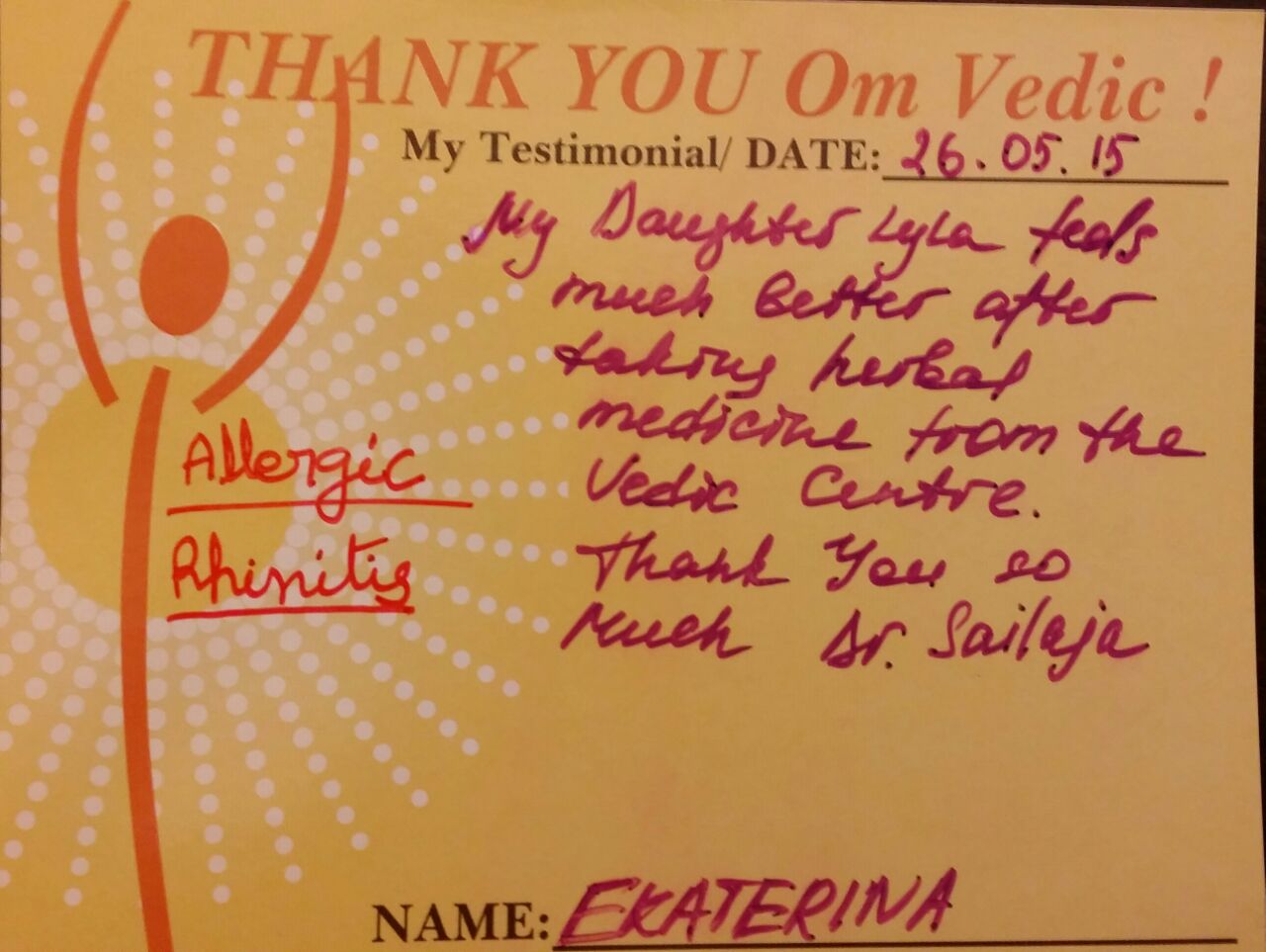Details
- Allergic Rhinitis according to Ayurveda. is primarily because of the toxins present in the body (ama) and due to the low immunity. Ama increases the levels of pitta and kapha in the body, thus giving rise to different symptoms of allergies. Ayurveda considers this as a Kapha-Pitta disorder.
The most common cause of allergies is pollens of the grass, trees, weeds and molds. Rhinitis could range from mild nasal congestion to skin rashes.
SIGNS & SYMPTOMS:
- The symptoms of vataja prathisyaya (Ayurvedic name for Rhinitis) are: Nasanaha is nothing but nose block, Kaphasruti is running nose, rhinorrhoea and Kshava is sneezing. Sneezing may include paroxysms of 10-20 sneezes.
What preventive measures can I take for Allergic Rhinitis?
- Best preventive measure is to avoid what causes your allergic symptoms. Though it may be impossible to completely avoid all your triggers, you can often take steps to reduce your exposure to them. You can do this by:
- Controlling dust and dust mites by regular dusting and washing bed sheets in hot water
- Controlling animal dandruff and other pet allergens by restricting pets to certain areas of your home
- Controlling indoor molds by cleaning bathtubs and showers frequently
- Avoiding outdoor pollens
- Wear a simple mask to avoid exposure to dust
- Maintain low humidity which keeps fungal invasion down
- Treat windows, shower curtains and indoor plants with mild fungicides
- Keep a check on cockroaches and rodents.
DIET & LIFE STYLE:
- One must avoid cold, oily and heavy foods.
- Digestion and bowels should be regulated with healthy and light foods.
- Head bath with cold water must be avoided.
- After head bath, one can apply Rasnadi churnam on the vertex of the head which will prevent seepage of moisture into the sinuses.
- Ice creams and cold beverages should be strictly avoided.
- At the first sign of flu and common cold, one must take precautionary measures like steam inhalation, fumigation, hot fomentations and warm soups etc.
- Regular use of Nasya with Anu tailam is beneficial.
- Regular practice of yoga and Pranayama.
- Day sleep should be avoided.
- Avoid exposure to cold.
- Use of warm caps and coats while going out in the cold
- Sudden exposure to sun after prolonged stay in a cold temperature (air conditioned room) has to be avoided.
- Alternating use of cold and hot things has to be avoided.
- Certain foods are more mucous producing and Ayurvedic medicine recognizes those foods as Kapha foods. Dairy, wheat, sugar, night shade family like potatoes, tomatoes, bell peppers,
- peppers, and bananas, oranges, tangerines, grapefruits all are considered Kapha foods, thus aggravating allergies.
|
Treatment Case Study ALLERGIC RHINITIS
Sex- Male Age-17yrs.
COMPLAINTS:-
- Early morning sneezing with clear fluid dripping from the nose.
- Suffers from constant headaches in the morning and towards the evening.
- Itchy eyes and runny nose very often.
- If exposed to air condition or cold environment or dust he starts sneezing continuously.
HISTORY :-
- Patient has a history of allergic rhinitis and sinusitis past 5 years.
- It was very rare in his early years but became more frequent past 5years, due to which he is not able to concentrate on studies and feels lazy to do other activities like sports, etc.
AYURVEDIC APPROACH:-
- Patient was advised to follow the strict diet for at least 2 months.
- Along with that he was prescribed Ayurvedic medicines and DETOX therapy, nasal drops(Nasyam) to remove the sinus blockages for 14 days for 2 weeks, with regular follow ups.
1st week :- Sneezing reduced with feeling of lightness
2nd week :- Headaches were less than before.
3rd week :- Energy levels were good and heaviness of head and laziness had reduced tremendously.
4th week :- no episodes f sneezing this week, with good energy.
Patient was advised to follow strict diet for 1 more month. After 1month, patient was feeling completely relieved of his symptoms.
USEFUL HERBS:-
- Turmeric
- Black pepper
- Amla(Indian gooseberry)
- Dry Gininger
|


